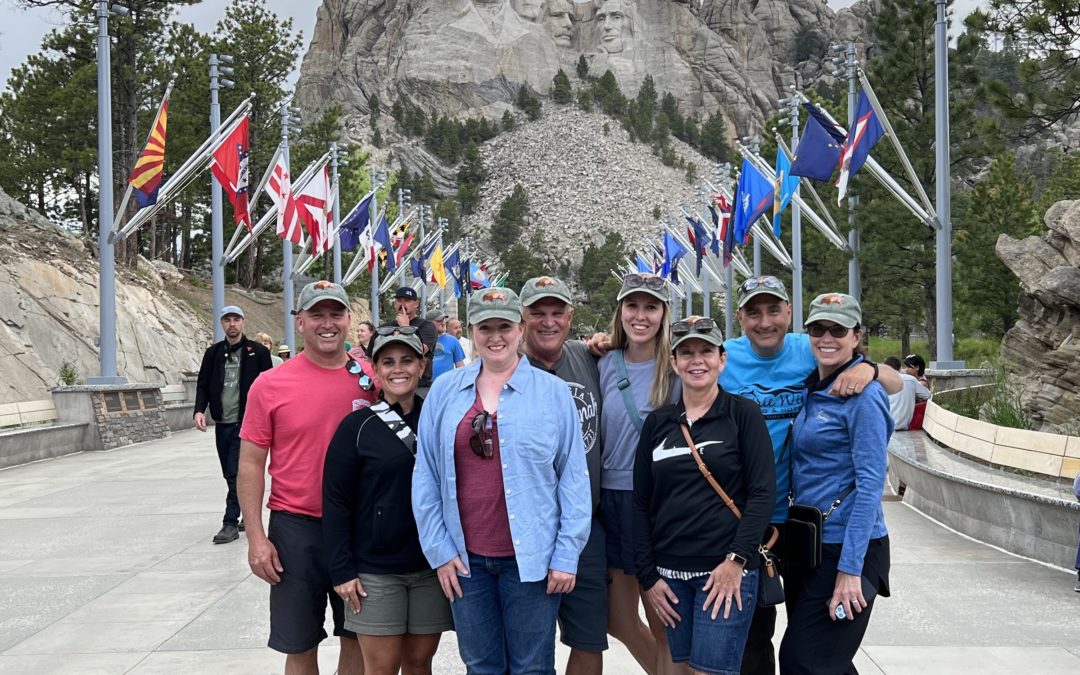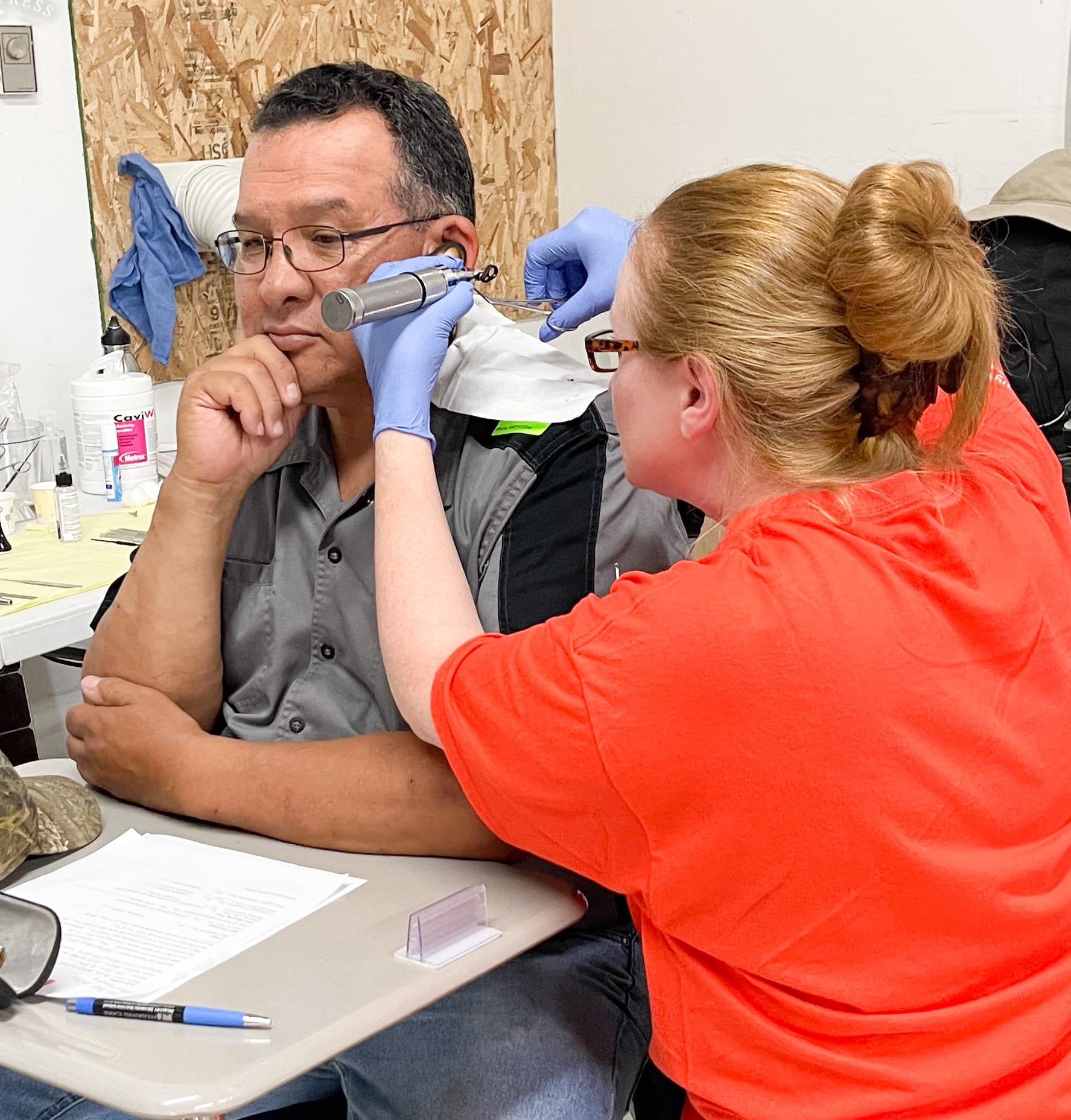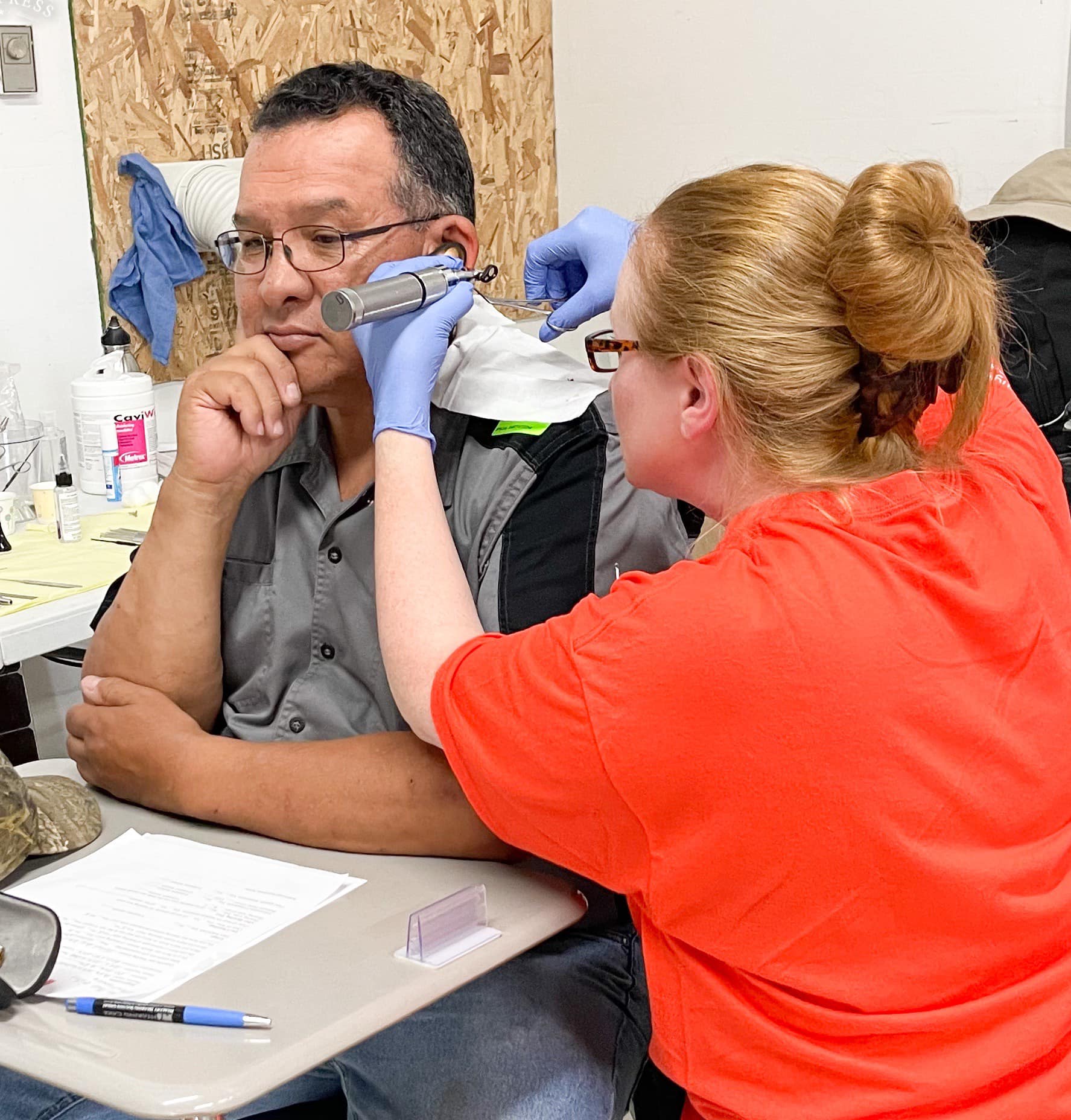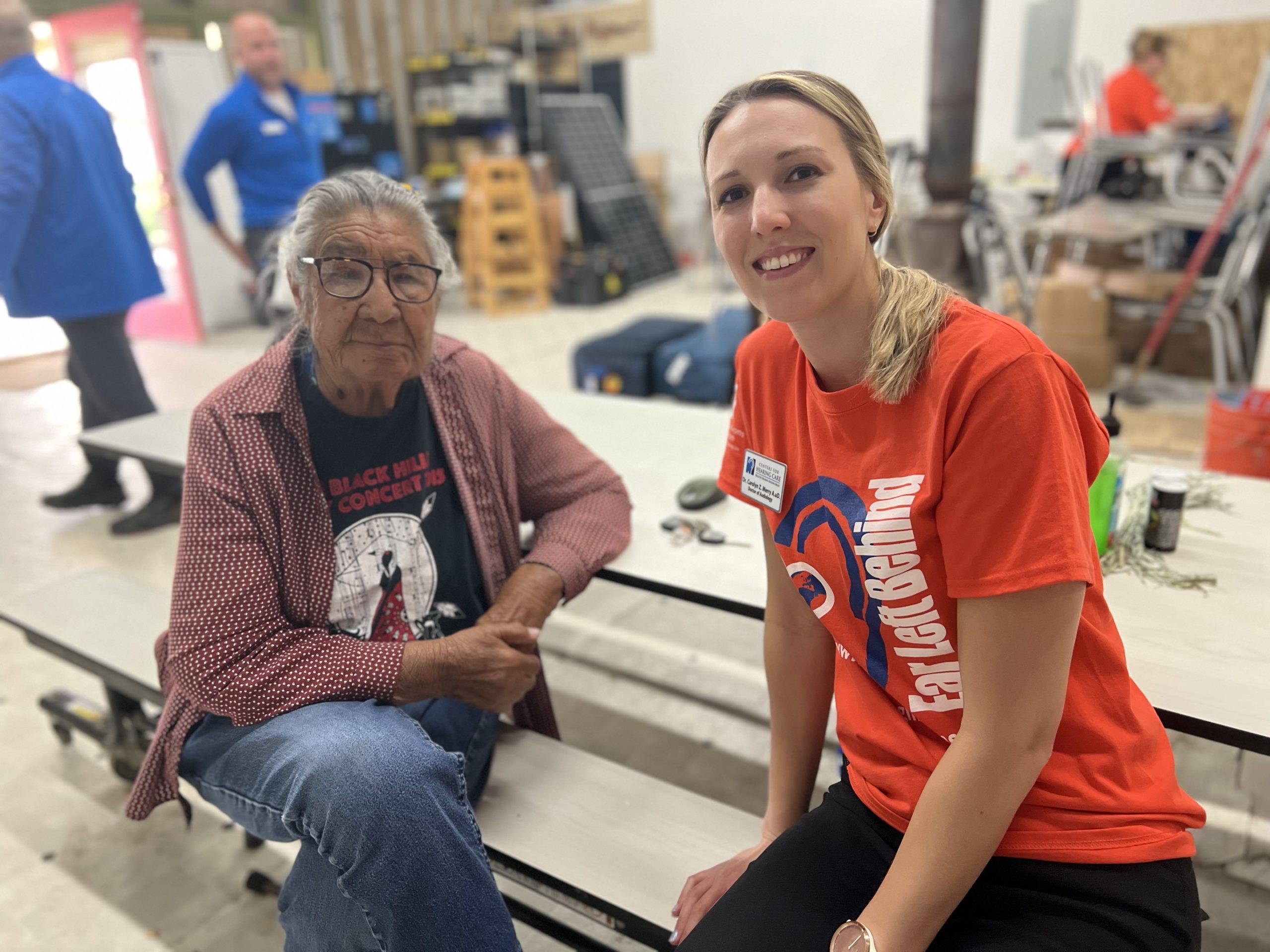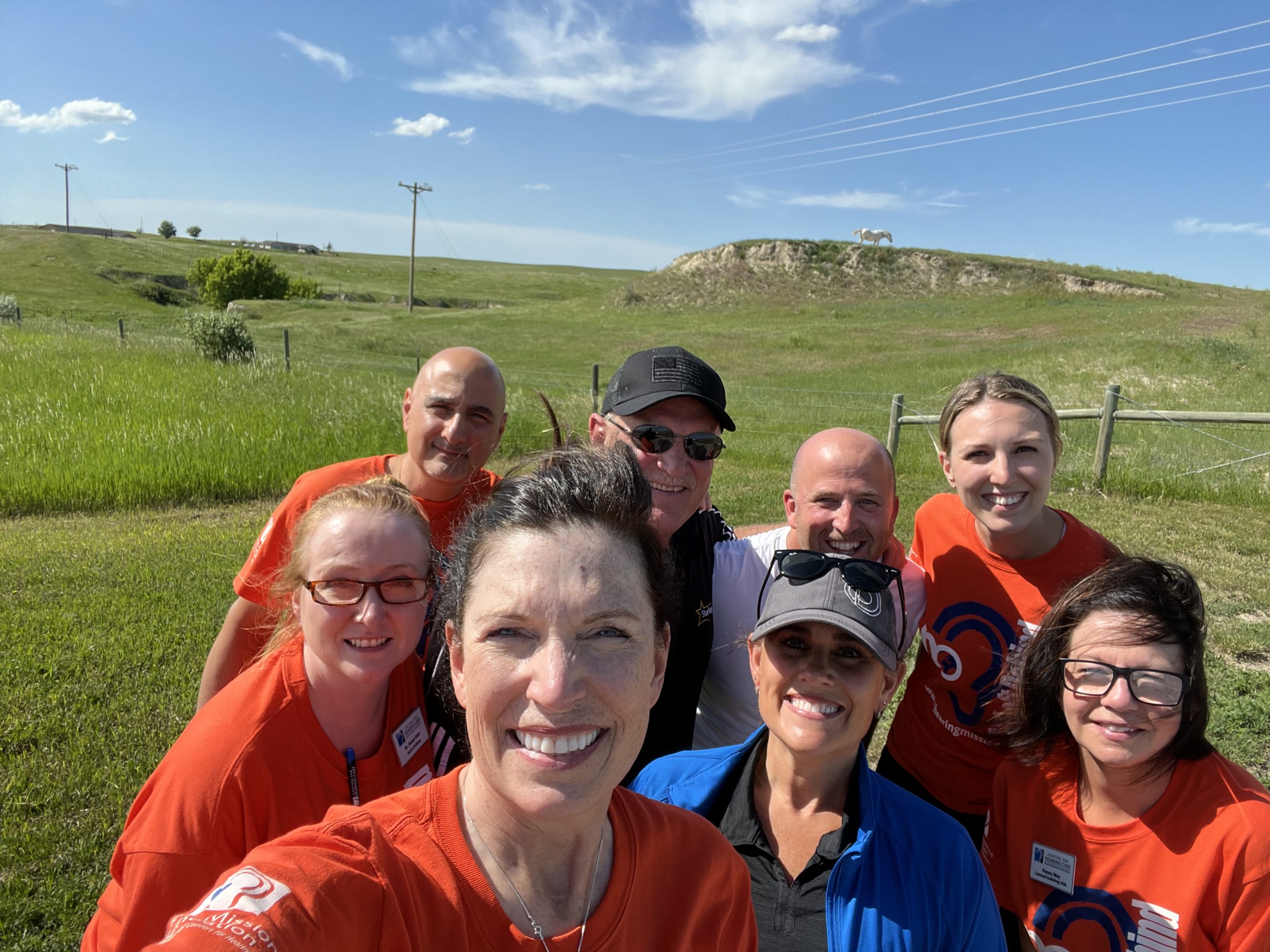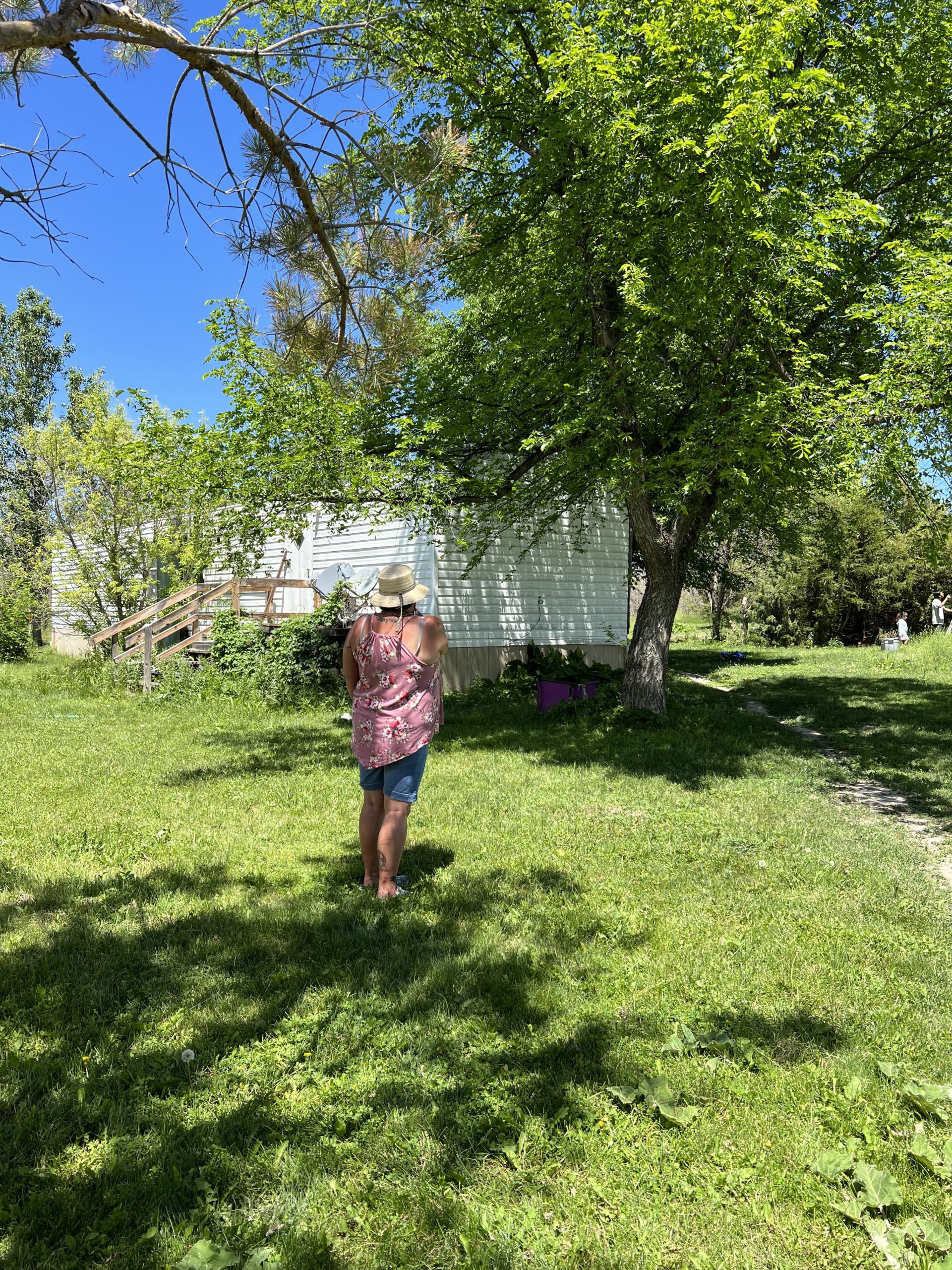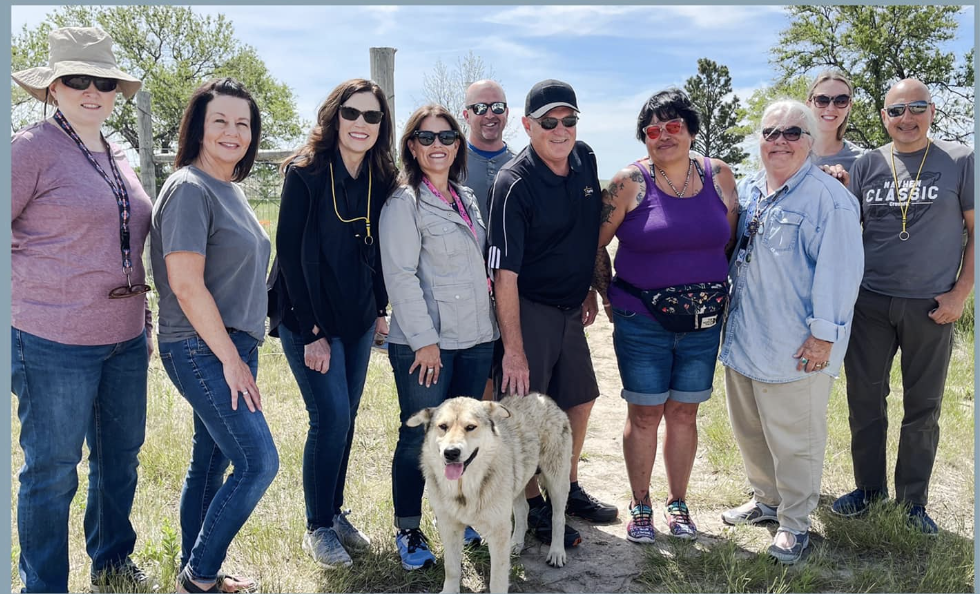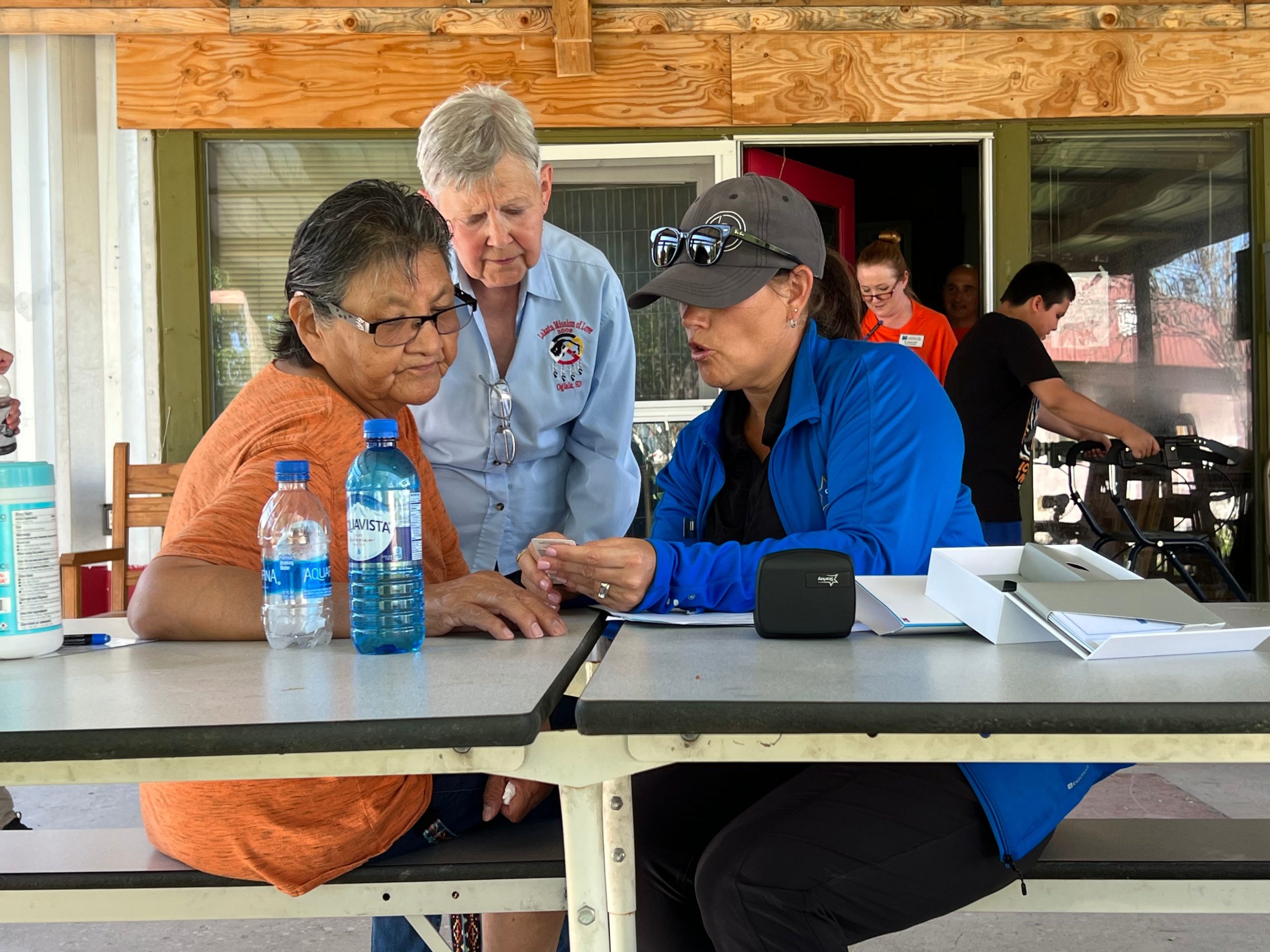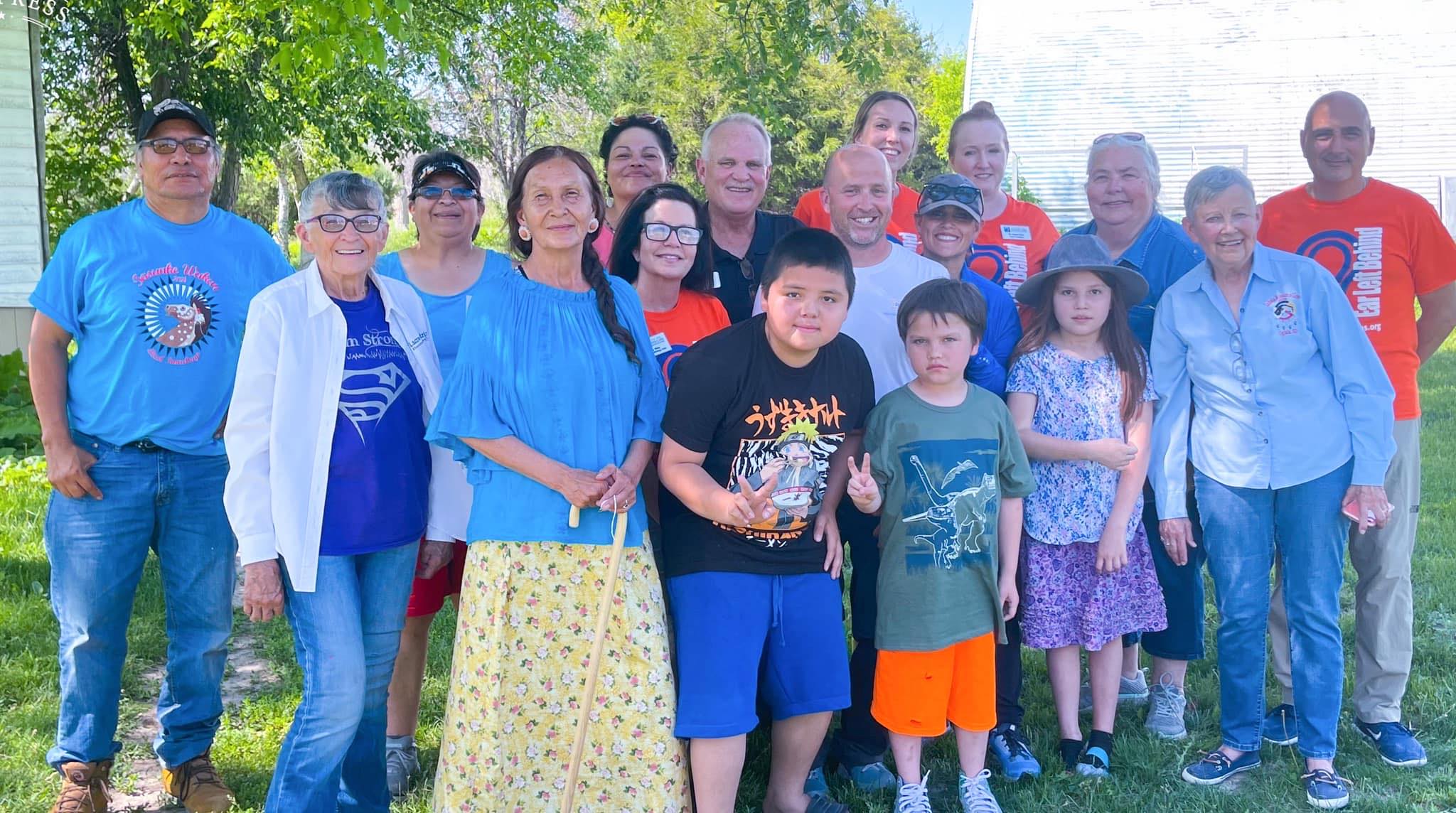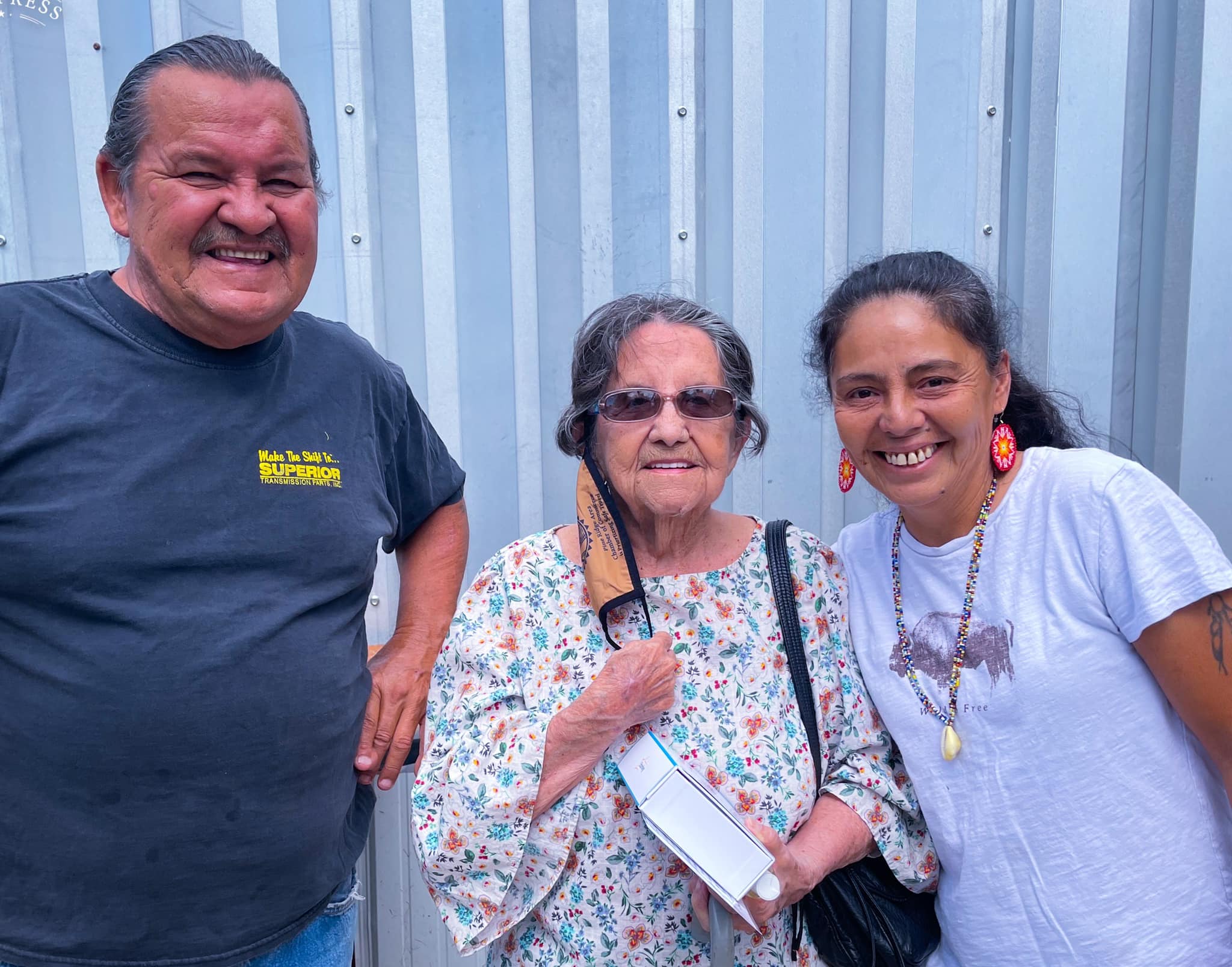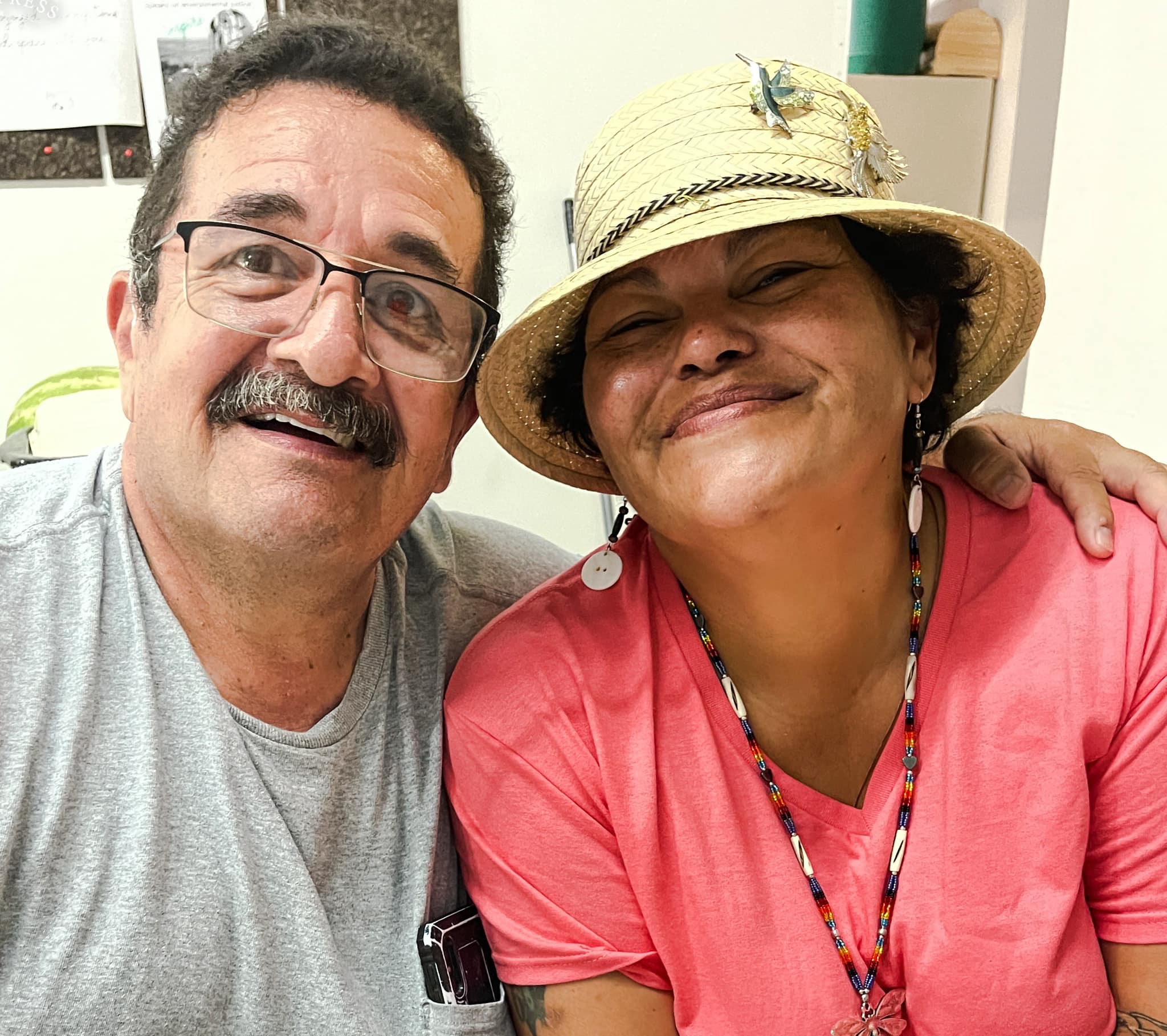Dr. Susan Herr:
The opening blessing was a strong memory for me in regard to their language is their culture and their culture is their language. Ears that do not hear are very isolated from this interconnected link to tribe and culture.
There were many members who were missing out on the language and culture that make up the Ogala Lakota Tribe. With the help of our team, these individuals are now better connected to their culture and the nature around them.
- Hearing the birds sing
- Hearing the rattlesnakes
- Hearing the sounds of the pow-wow
- Hearing the sounds of family and friends
Dr. Carolyn Merry:
All the people we fit with hearing aids were so appreciative of what we were doing. I think it was hard for them to wrap their heads around the idea that we were there volunteering our time, services, and hearing aids to them without asking for anything in return. Everyone seemed so grateful for being able to hear better.
Also, even though we saw more people on the second day, I thought it went more smoothly because we figured out the best way to work as a team by then. Everyone was always willing to pitch in to help even if it was outside of their “assigned role.” We were productive but we also had so much fun as a team!
Dr. Sheryl Figliano:
One of my patients that came in was an elderly woman who could not hear me even when I was shouting. Her two little grandchildren brought her in and said, “Our Grandmother cannot hear. She takes care of us, even when we yell at her she cannot hear us.” After we fitted her with hearing aids, she could hear again. The grandchildren were so excited, and everybody was in tears!
Can you imagine not being able to hear your grandchildren at all? Especially because she was responsible for caring for them and their safety! Hearing aids truly are life-changing!
Fortunato Figliano:
Perhaps my most fond memory is from our dear friend Joy, who received hearing aids for the first time in her life. Within minutes of receiving her hearing aids, with doors open, she could hear birds chirping outside. She hastily informed us that she must leave at that very moment to hurry outside to listen to the birds chirping. As I watched her off in a nearby field under a tree her eyes were filled with tears looking up at the sky.
When I approached her to make sure she was okay, she shared with me that this was the first time she could remember hearing nature so vividly as she soaked in the sounds around her. Those of us with normal hearing simply are not able to fathom or understand the impact of such simple sounds we take for granted mean to our own lives. Only through Joy do I feel like we can all peak into the window of despair to understand the importance of the sounds we hear daily just a little. Maybe just in those moments, whereas those with hearing loss know the importance of sound every moment!
Penny May:
As always, I feel like I take away so much more than I give.
Henry was so kind to allow us to utilize his property and meet his Alejandro. Alejandro was the sweetest and most caring young man. It was sad to wave goodbye to him on that last day 🙂.
Albert with his touching opening prayer and learning a bit more about their culture.
Our furry friend Saltine!
The most touching story to me, was the 70-year-old native with vision issues and her wish to be able to hear a nearby rattlesnake and to be able to react and be safe. I’ve worked with lots of patients and this by far “struck” me dead in my tracks.
To our “team”! Getting to know Brian, Kelli, and Mike. What a perfect match of people for this mission. Being on missions like this makes me feel so much closer to our Center for Hearing Care team members. I haven’t laughed so much in a long time. It’s true laughter really is the best medicine.
Kelli Peden:
Wow, what an amazing adventure! I am so thankful to have been included in this Hearing Missions Foundation event. I truly enjoyed getting to know and working with the great team at Centers for Hearing Care.
There were so many favorites of this trip but at the heart of it all was helping the Lakota people. Seeing the amazement, joy, and gratitude on their faces as they walked out of the building after being fit with their hearing aids. Each one of them stopped in their tracks, eyes wide open in awe of being able to hear the birds, the leaves blowing in the wind, the sound of their own voices, the voices of those behind them, and even their own footsteps. The things we without hearing loss take for granted on a daily basis brought these people back to life. This really was an incredible week helping others and meeting great people.
Exploring beautiful South Dakota with the team was the icing on the cake.
Something was amiss… (Continued Above)
I want you to imagine me driving back from Pine Ridge Reservation on the last day of our mission. Imagine you are driving the van with your team, everyone is feeling somber after leaving behind their new friends, left with the feeling that there is so much more to do here. While driving what is on your mind is not the victories of who we helped. What is on your mind is the poverty, and the stories told to us about the history here. What is on your mind is the help needed. You see a proud group of individuals linked together by their indigenous languages, linked together with a wonderfully rich history and cultural wonders. However, poverty, drugs, alcoholism, and violence have become too common for too many.
What is amiss is that no matter how much help we tried to give during these mission days, what is on my mind while I drive – is that this is a place that calls for intervention, calls for help, calls for understanding. What is amiss is that the help we gave during these mission days felt like just a drop in the ocean. A drop in an ocean of need and this is hard to accept.
As I fast forward a week or so and our team is home. We are still talking about the memories of our amazing new friends, I think about how to continue to help and even who should help. Who should help? The US government? Unfortunately, this relationship has historically been fraught with peril for this group and any mistrust is warranted. Who else might help? The average American citizen, who like me, is far removed from this place and who does not understand how to help and does not clearly understand the culture, the history, and the problems at hand? And lastly, it would be too easy to say that Native Americans need to fix these issues on their own.
There is possibly only one solution, at least for our group of volunteers who so much want to help. Here is my conclusion about all of what is amiss. For Hearing Missions Foundation, as a group of volunteers, continue our plan to help as many individuals as possible with hearing issues with the resources we have at our fingertips. A plan to inspire others to join in to help in the right way, the way in which everyone requires at an individual level. A plan that respects cultural differences when offering ideas. A plan that accepts the fact that even one drop at a time will make a difference if we gain the support of many others. Only in this way will we fill an ocean, one drop at a time. One drop at a time with love, enough so that we can all Hear Love.
How can you help
the hearing missions foundation?
Spread the word • Donate old hearing aids
Give monetary gifts • Host fundraisers
Join us on a mission!
How can you help the hearing missions foundation?
• Spread the word
• Donate old hearing aids
• Give monetary gifts
• Host fundraisers
Join us on a mission!

